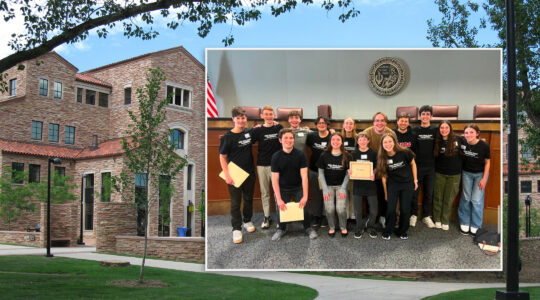Reform Judaism is the largest of the religious streams, with some 900 synagogues in North America, but it is far from immune from the challenges facing Jewish life in the diaspora.
A position paper drafted last month by the rabbis of the 18 largest congregations and circulating now among their colleagues offers a sober assessment of the social changes in the national Jewish landscape, and a tough critique of the movement’s key organizations.
The paper, obtained by The Jewish Week and titled “Urgent Change, Lasting Transformation,” notes that Jews today feel less of a sense of kinship with each other; denominational loyalty is less relevant; synagogues have become “pass-throughs of convenience for life-cycle celebration”; intermarriage has made its mark, and “almost half of the children being educated in Reform synagogues are growing up in a family in which one parent was not born Jewish”; younger Jews “are not joiners and see denominations as divisive or irrelevant”; and “national organizations can no longer depend on communal support for Israel.”
There’s more. The Union for Reform Judaism (URJ) is criticized for having “not responded to the dramatic changes in the wider landscape of Jewish life,” and its alleged faults are cited in detail.
The rabbis who formed what they call the Rabbinic Vision Initiative and drafted the document said they did so out of love and concern for Reform Judaism, in hopes of focusing more attention to synagogue life, and bringing the movement’s congregational arm, rabbinic school and rabbinic organization in alignment and better able to work together.
One of those rabbis is Richard (“Rick”) Jacobs, the highly regarded senior rabbi of Westchester Reform Temple in Scarsdale. In a move expected to bring dynamism and innovation to the movement, Rabbi Jacobs was tapped this week to succeed Rabbi Eric Yoffie as president of the URJ, when Rabbi Yoffie retires in 2012 after 16 years at the helm.
The most telling sign that Rabbi Jacobs was an excellent choice is the fact that so many of his colleagues are describing him as having the vision, energy, passion and commitment to take on the challenges he surely will face.
And as he noted in an interview on Tuesday, the problems his movement faces are those that much of organized Jewish life, from religious streams to organizations, are confronting. Only those that can answer the questions “why join and what’s in it for me,” will succeed.
Rabbi Jacobs has had much success in making his synagogue into a place of spirituality, learning and service. “Only meaningful congregations will matter,” he says. “People won’t join just because their grandparents did. We have to matter every day.”
He hopes to bring that energy and sense of meaning to congregations throughout North America, and we wish him every success.
The New York Jewish Week brings you the stories behind the headlines, keeping you connected to Jewish life in New York. Help sustain the reporting you trust by donating today.




